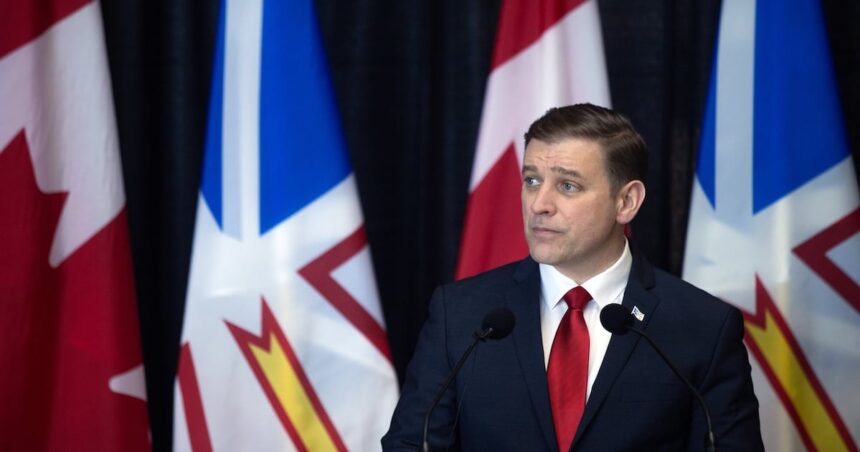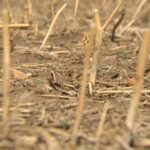I sat down with my coffee yesterday as news broke that Andrew Furey, the physician-turned-politician who led Newfoundland and Labrador through some of its most challenging years, had quietly submitted his resignation from the provincial legislature. The move comes nearly five months after he stepped down as premier, closing a significant chapter in the province’s political story.
“It felt like the right time to move forward,” Furey told me during a brief phone conversation. “The province is in capable hands, and I’m looking forward to focusing on my family and exploring new opportunities.”
Furey’s resignation creates yet another vacancy in Newfoundland’s House of Assembly, triggering what will be the third by-election since the Liberals’ surprising defeat in the March general election. The timing presents a fresh challenge for Premier John Smith’s Progressive Conservative government, which has been working to establish its footing after ending nearly a decade of Liberal rule.
Many in Humber-Gros Morne, Furey’s former riding, expressed mixed emotions about his departure. “He was always accessible, even when he was premier,” said Eleanor Parsons, who runs a small business in the district. “But people understand when someone’s ready to move on.”
Political observers across Atlantic Canada have been speculating about Furey’s next steps since his March departure from the premier’s office. Sources close to the former orthopedic surgeon suggest he may return to medicine, though others hint at potential opportunities in the private sector or academia.
Reflecting on Furey’s tenure, Memorial University political scientist Margaret Reynolds notes his leadership came during extraordinary circumstances. “He took office during a pandemic and faced down a provincial financial crisis that required difficult decisions. His time as premier will be remembered for steady management during unsteady times.”
Furey’s signature achievement was negotiating the $5.2 billion federal assistance package that helped stabilize the province’s finances in 2021. The agreement, which prevented what many feared would be bankruptcy, included significant federal investment in exchange for provincial fiscal reforms.
The most recent polling from Atlantic Insight shows Furey left office with a 52% approval rating – respectable numbers for a premier facing the headwinds of inflation and healthcare challenges that have troubled governments across Canada.
Finance Minister Sarah Williams acknowledged Furey’s contributions yesterday. “While we sit on different sides of the political divide, I want to recognize Andrew’s dedication to public service and his genuine commitment to moving our province forward,” she said at a community event in St. John’s.
For the current Liberal opposition, Furey’s departure represents both a challenge and opportunity. Interim Liberal leader Patricia Murphy must now defend another seat while continuing to rebuild a party still processing its electoral defeat.
“Andrew leaves behind big shoes to fill,” Murphy told reporters outside the legislature. “His leadership through COVID-19 and the financial restructuring discussions with Ottawa demonstrated his ability to make tough decisions while keeping Newfoundlanders’ best interests at heart.”
Having spent time in Humber-Gros Morne during last fall’s provincial tour, I’ve seen firsthand how the riding’s mix of fishing villages, tourism operations, and resource development creates unique economic pressures. Whoever inherits Furey’s seat will need to navigate these complexities while rebuilding trust in a region where support for the Liberals has waned.
The Electoral Commission of Newfoundland and Labrador confirmed yesterday that a by-election must be called within six months, though most expect Premier Smith to move more quickly to capitalize on his government’s current momentum.
For his part, Furey expressed confidence in his district’s future. “The people of Humber-Gros Morne are resilient and pragmatic,” he said. “They’ll choose someone who understands their priorities and can advocate effectively for the region.”
What remains unclear is whether Furey’s political story has truly ended or merely entered a new chapter. At 48, the former premier is considerably younger than many who exit provincial politics, and his national profile grew substantially during his negotiations with Ottawa.
Several Liberal insiders, speaking on condition of anonymity, suggested Furey might eventually consider federal politics, though he dismissed such speculation during our conversation. “Right now, I’m focused on reconnecting with my family and medical practice,” he said.
As Newfoundland prepares for yet another by-election, Furey’s resignation reminds us how quickly political landscapes can shift. Just eighteen months ago, he was leading a majority government with strong approval ratings. Today, he joins the growing ranks of former premiers navigating life after leadership.
For the people of Newfoundland and Labrador, the political transition continues – another test of democratic resilience in a province that has weathered more than its share of storms.






